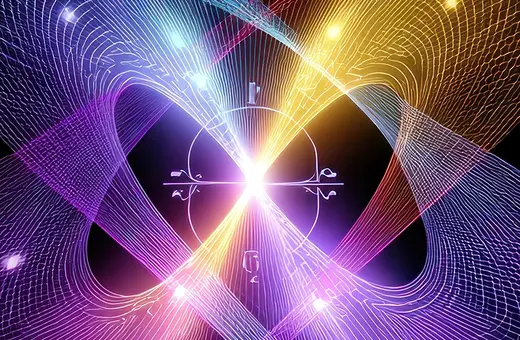The idea that there is a Book of the World containing all the world’s facts, and that science is the way to discover the contents of that book, dates back to Galileo. That belief, that reality can be exhaustively described by science, has gone hand in hand with the belief that the world contains only physical things. But as a famous 20th century philosophy thought experiment by Frank Jackson demonstrated, some facts about the world can’t be discovered by reading books. But unlike what Jackson thought, this doesn’t show that the world isn’t physical, but that not all facts about the world can be stated by science, argues Tim Crane.
When Galileo wrote in 1623 that God had written the book of the world in squares and circles, what he meant was that the fundamental way we should understand the physical world was in terms of mathematics. The idea of a Book of the World is the idea of a book in which all truths are written down, the truths about everything that has happened and will happen, the truths about the laws of nature, the truths about our minds, about society, art, music and so on. Everything. This suggests not just a theory of the world, but also a list every truth or every fact. If there were a God, we might say, and if he is really omniscient, then the Book of the World would list all and everything he knows: all the facts.
Obviously there is no actual Book of the World in this sense. But if there could be such a book, then it might seem that someone who knew the contents of the book would know absolutely everything, all the facts. One of analytic philosophy’s most famous thought experiments —Frank Jackson’s 1982 story of Mary in the black-and-white room — suggests this idea. Jackson used this story in an argument (the ‘Knowledge Argument’) aimed to show that physicalism – the theory that claims that all facts are physical facts – is wrong. But I don’t believe the argument shows this – what it does show is that not all facts can be expressed by science, and therefore a Book of the World cannot exist.
In fact, there can be no such thing as a Book of the World. It is an impossible ideal.
The facts, the whole facts, and nothing but the facts
The idea of ‘all the facts’ is a seductive one. Some metaphysical theories of the world — the most general and abstract accounts of reality which philosophers and scientists create — use the idea with enthusiasm. Physicalism (also known as materialism), for example, says that all facts are physical (or material). Or it might say that all fundamental facts are physical, and the less than fundamental facts can be somehow derived from the fundamental ones. It seems a short step from here to say that someone who knew all the physical facts would thereby know all the facts — all truths about the world. It might look, therefore, as if physicalism is committed to the idea of a Book of the World.
But in fact, there can be no such thing as a Book of the World. It is an impossible ideal. This, I will argue, is the real lesson of Jackson’s Knowledge Argument. This argument has had thousands of pages written on it in the last forty years, and it has even appeared in mainstream fiction (in David Lodge’s 2001 novel, Thinks…). This is partly, I think, because the story is so simple, and its consequences so puzzling.





















Join the conversation